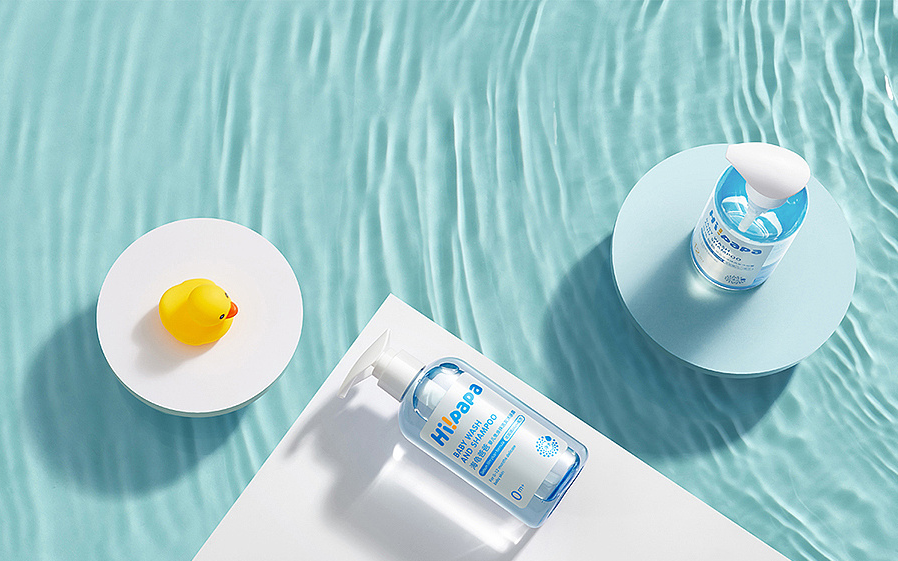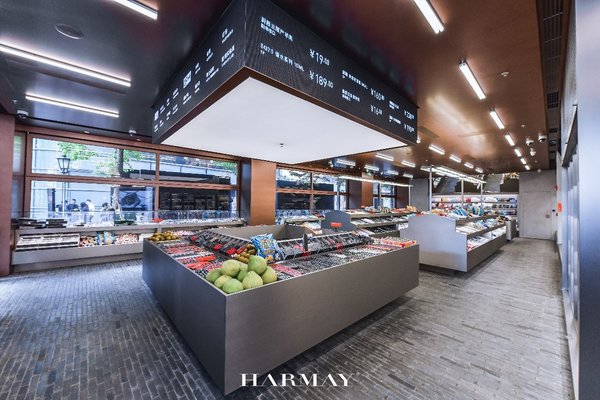Market updates
1. Besides Tmall, JD.com, and Kaola.com, another Chinese tech giant Meituan joined the cross-border e-commerce (CBEC) business. Meituan is a one-stop platform for food, transportation, travel, shopping and entertainment. Recently, it added a new channel named Global Shopping on its app, allowing overseas brands to sell products through the CBEC channel. For now, most brands entered this channel are beauty brands.
2. In 2022, Tmall Global welcomed the entry of multiple beauty brands, including four brands from L’Oreal group (LA ROCHE-POSAY, VICHY, NYX Professional Makeup, and IT Cosmetics) and two brands from Amorepacific group (HERA and IOPE). It is worth noting that HERA and IOPE shut down some counters in China in 2021, implying that they are switching their focus from offline to online.
Company dynamics
1. Chinese children personal care brand Hi!papa (海龟爸爸) recently completed its Pre-A round of financing, securing nearly 100 million yuan. Hi!papa focuses on providing personal care products for children aged 3 to 12. It now has three product lines, covering skincare, toiletries, and sunscreen. The total sales of its best-selling product stood at 500,000 units, while the rest of products achieved from 600,000 units to 100,000 units total sales since the brand was founded.

Hi!Papa's products
2. Chinese CBEC platform Kaola.com launched a fragrance customization service. Spring tea became the most popular scent. With the rise of the olfactory economy, consumers’ demand for niche and customized fragrances has also grown. Kaola’s data shows that its fragrance sales in 2021 increased by 130% compared with 2020.
3. Recently, P&G founded a new department named Specialty Beauty to manage three acquired brands, including two skincare brands Tula Skincare and First Aid Beauty, and one haircare brand Ouai.
4. L'Oréal Group and neurotech company EMOTIV have announced a strategic partnership to work on a system to help consumers make accurate and personalized fragrance choices.
The system will be rolled out in YSL beauty flagship stores across several countries in 2022 and 2023. Consumers can experience exclusive scents while wearing a headset that can use machine learning algorithms to interpret consumers’ electroencephalograms (EEGs), thus helping consumers identify their “perfect fragrance”.

5. Two beauty giants released NFT digital products:
LG H&H unveiled its first NFT brand, “Belief” in South Korea, and it was sold 3000 Belief NFT in March. In the future, L&G plans to release NFT products five times every year.
Estee Lauder released its first NFT product during the fashion week of virtual world Decentraland. The product is inspired by its classic product Advanced Night Repair and was provided to users of Decentraland for free during the fashion week. Estee Lauder hopes that Advanced Night Repair NFT can attract potential consumers of the virtual world.
Before these two brands, L’Oreal and P&G have released their NFT products.
6. Amorepacific group unveiled a new customized skincare brand, Custom Me, targeting consumers with sensitive skin. This brand provides consumers with customized products by using AI analysis method. Also, users can get one-to-one expert consultation services through the “CUSTOM.ME+” app, where the consultants will give users an 8-week personalized beauty care guide.
7. Chinese distributor SuperOrdinary acquired American skincare brand Joanna Vargas. The brand’s founder Joanna Vargas is a famous beautician in America. She opened her first spa center in New York in 2006 and started to sell skincare products in 2011. The brand’s goal is to let women experience a spa at home. After the acquisition, the Joanna Vargas team and the SuperOrdinary team will work together to expand its business to North America, China, and Southeast Asia.

Joanna Vargas's products
8. High-end lifestyle brand melt reason gained over 10 million yuan investment. Recently the brand launched its first product line, high-end fragrance, and will expand to the home fragrance and personal care business in the future. Its first offline store will open in April in Shanghai.
9. Shiseido group will soon release a new clean beauty brand Udé, whose biggest selling point is using plants as ingredients. Shiseido hopes that it will boost its clean and sustain beauty business development further. Another clean beauty brand Drunk Elephant acquired by Shiseido in 2019 achieved an 11% growth in sales in 2021.
10. L’OCCITANE Group acquired Australian skincare brand Grown Alchemist. Founded in 2008, Grown Alchemist focuses on providing nonsexual, vegan, and cruelty-free skincare, hair care, and body care products for internal and external use. The brand uses minimal and nonsexual packaging to promote a three-stage skincare concept of "clean, nontoxic, and activate."
11. Thailand makeup brand Mistine gained over 200 million yuan investment. Founded in 1988, Mistine entered China in 2014 and quickly achieved one billion sales within two years. As a brand from the tropics area, Mistine gained traction with high-quality sunscreen products and foundation products.

Mistine's products
Data browse
1. According to the National Bureau of Statistics, in January and February, China’s total retail sales of consumer goods reached 7.4426 trillion yuan, a YoY increase of 6.7%. The total retail sales of cosmetics were 61.8 billion yuan, a YoY growth of 7%.
2. By March 19, there have been 21 public financing events in the Chinese domestic beauty industry in 2022, covering ingredient suppliers, manufacturers, brands, and distributors. Investors are paying more attention to research and upstream beauty companies.
3. Since 2022, the sales of duty-free shops in Hainan have exceeded 15 billion yuan.
Financial results
Chinese domestic beauty groups released their annual report recently.
Yatsen Global (Parent Company of Perfect Diary) 2021
Total net revenues for the full year of 2021 increased by 11.6% to 5.84 billion yuan from 5.23 billion yuan in 2020.
Net loss for the full year of 2021 was 1.55 billion yuan, as compared with a net loss of 2.69 billion yuan in 2020.
The sales of makeup declined while the sales of the skincare sector increased by more than 360%, rising from 4.0% of the company's total revenue to 21.3% .
Bloomage Biotech (Hyaluronic Acid Giant) 2021
Operating income reached 4.948 billion yuan, a year-on-year increase of 87.93%. Net profit was 7.82 yuan, a year-on-year increase of 21.13%.
Functional skincare sector achieved revenue of 3.320 billion yuan, a year-on-year increase of 146.57%.
IMEIK (Hyaluronic Acid Giant) 2021
Operating income was about 1.448 billion yuan, a year-on-year increase of 104.13%. Net profit was about 958 million yuan, a year-on-year increase of 117.81%.
Jahwa 2021
Operating income was 7.65 billion yuan, a year-on-year increase of 8.73%; net profit was 649 million yuan, a year-on-year increase of 50.92%.
The skincare category’s revenue was 2.697 billion yuan, an increase of 22.22%, becoming the company's largest business category. Dr. Yu, a functional skincare brand, and Herborist, a skincare brand featuring Chinese herbal medicine, are core brands of this category. The repurchase rate of Herborist Tmall flagship store reached 41.6% in 2021, and the repurchase rate of Dr. Yu Tmall flagship store was 42.6%.
Regulatory compliance
1. To strengthen the management of safety risk substances in cosmetics, on March 10, 2022, China National Institutes for Food and Drug Control (NIFDC) released an announcement seeking public comments on the limitation requirements for benzene (CAS No. 71-43-2). According to the risk assessment results, the limit of benzene in cosmetics is proposed to be 2mg/kg. More details on ChemLinked.
2. On March 10, 2022, China National Medical Products Administration (NMPA) issued an announcement, answering frequently asked questions about ingredient safety information, efficacy claim evaluation, and sample retention. More information on ChemLinked.
3. Emerging cosmetic store HARMAY was fined 880,000 yuan for illegal labels on cosmetics. One of HAYMAY’s selling points is to provide consumers with cosmetic samples from big brands at low prices. However, these samples are not properly labeled, lacking information such as ingredients, filing number, etc.














